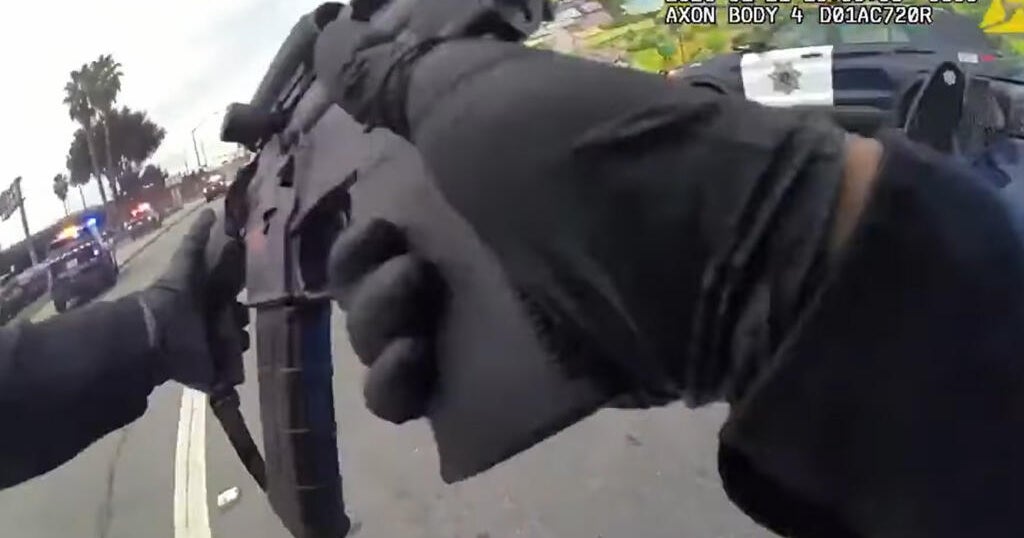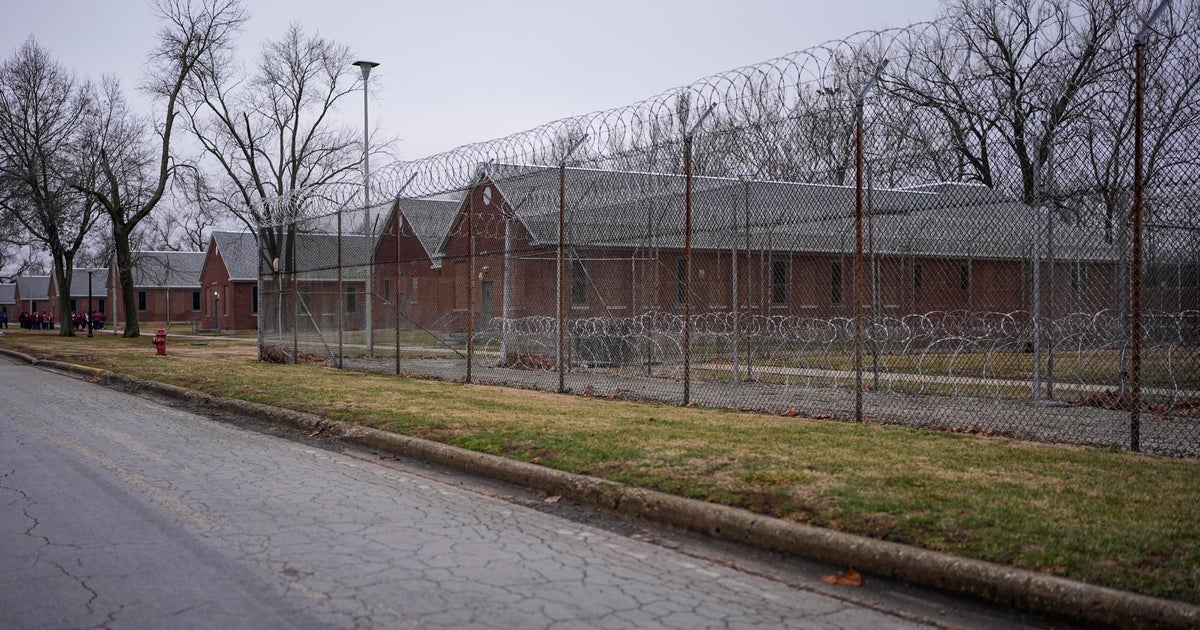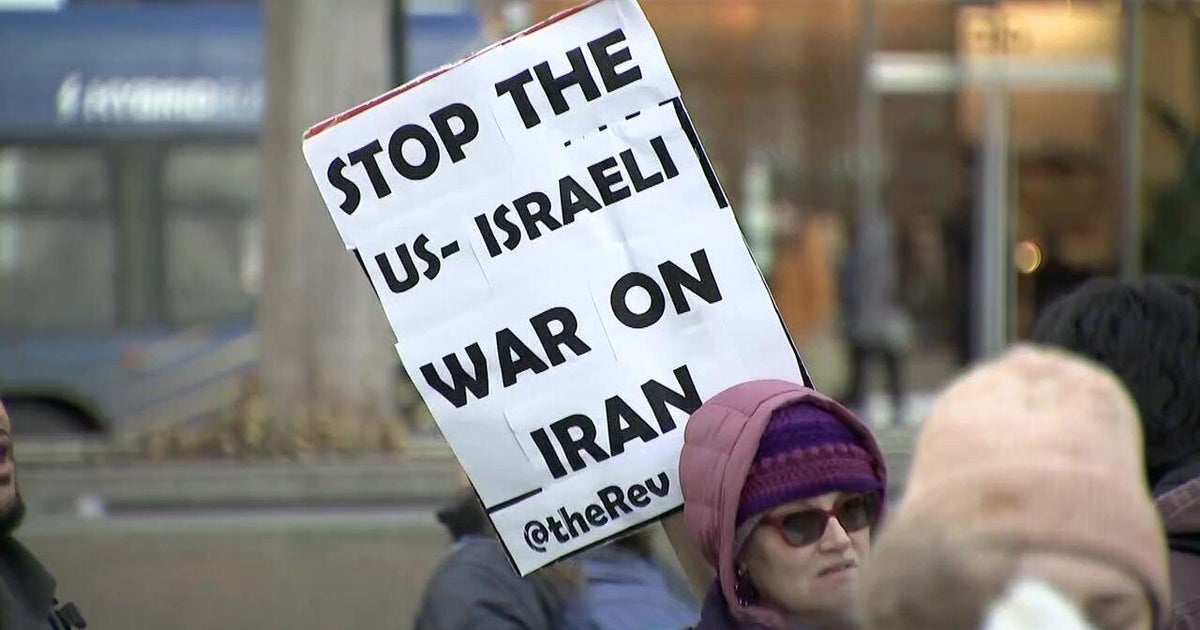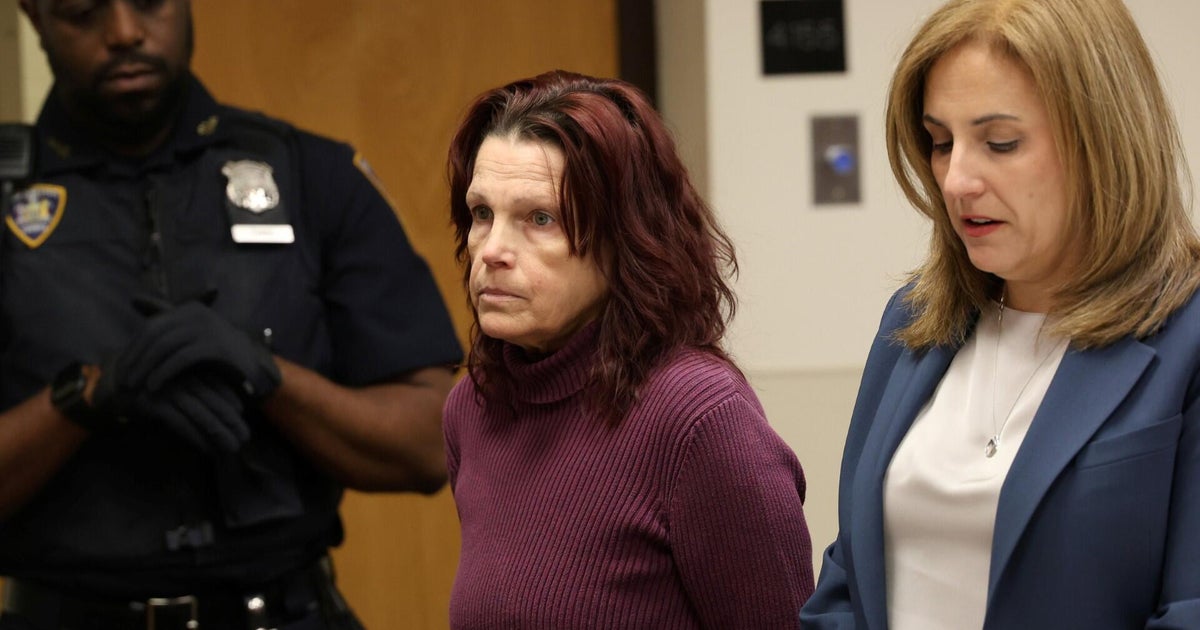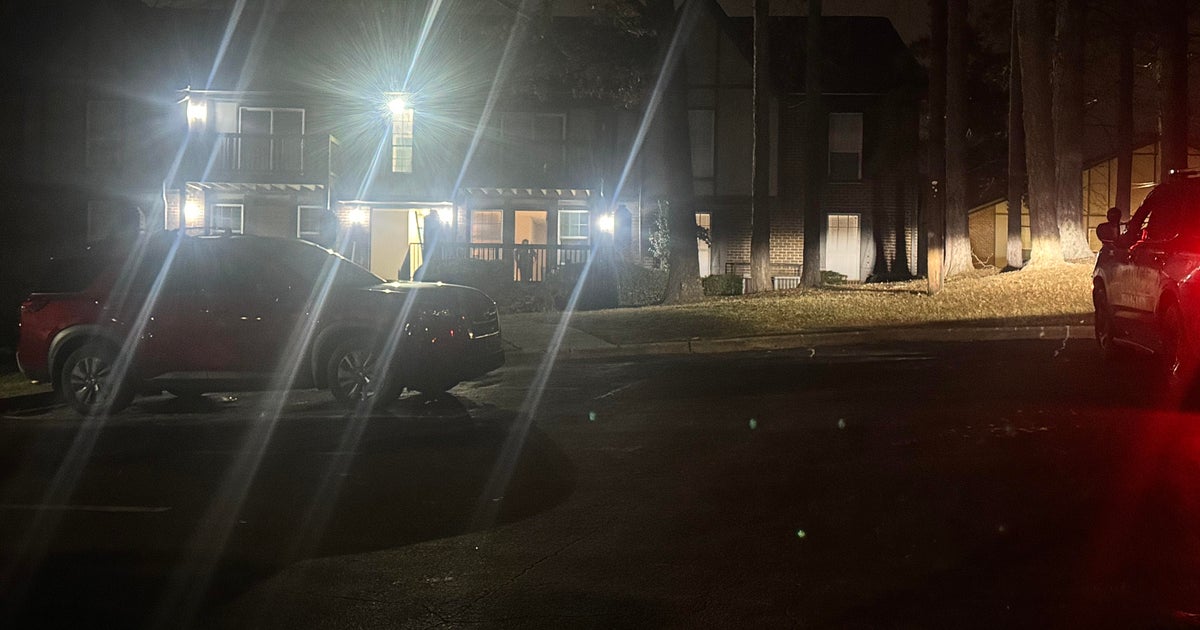Suspected Russian Arms Dealer Faces Terror Charges
NEW YORK (CBS New York / AP) -- A Russian labeled the "Merchant of Death'' by those who claim he fueled some of the world's deadly Third World conflicts over the last decade with powerful weapons is in U.S. custody where he belongs, a prosecutor said Wednesday.
'The so-called Merchant of Death is now a federal inmate,'' U.S. Attorney Preet Bharara said of Viktor Bout, who was flown from Thailand to a suburban New York airport Tuesday. "No one is beyond the reach of the law.''
Podcast
1010 WINS' Terry Sheridan reports
Podcast
WCBS 880's Irene Cornell reports
Bout, 43, a former Soviet military officer and air cargo executive, faces charges he supported terrorists trying to overthrow the government of Colombia and shared their hatred for Americans.
"No one should ever think he can plot to kill Americans with impunity,'' Bharara said.
Bout, who wore a brown shirt and black sweatpants, pleaded not guilty through his lawyer, Sabrina Shroff, and spoke politely as he answered the judge's questions.
At one point, Bout was asked if a fianancial affiddavit he signed was accurate. He replied, 'Yes, I swear,'' through an intrepreter, standing and raising his hand as if swearing to tell the truth.
The judge ordered him detained without bail while awaiting his next court appearance, which was set for Jan. 10.
Prosecutors also announced the unsealing of a July 2008 guilty plea by Andrew Smulian, another defendant in the case. Bharara said Smulian admitted that he conspired with Bout to carry out a weapons deal with the Revolutionary Armed Forces of Colombia. He is cooperating with the U.S. government.
U.S. Attorney General Eric Holder said Tuesday that Bout was considered "one of the world's most prolific arms traffickers.''
"Viktor Bout has been indicted in the United States, but his alleged arms trafficking activity and support of armed conflicts in Africa has been a cause of concern around the world,'' Holder said in a statement. 'His extradition is a victory for the rule of law worldwide.''
For several months, U.S. and Russian officials had fought for control of Bout, flexing muscles in a manner that seemed to threaten cooperation on arms control, nuclear weapons curbs and the war in Afghanistan.
In one high-profile meeting in Hanoi last month, a former U.S. official said, Russian Foreign Minister Sergei Lavrov warned U.S. Secretary of State Hillary Rodham Clinton that Russia's cooperation on anti-narcotics efforts in Afghanistan might be curtailed unless Bout was freed.
Lavrov said in remarks broadcast on Russian television Tuesday that the Thai government's decision was ``an example of glaring injustice.''
President Barack Obama's administration insisted its efforts to rebuild relations with Moscow could weather any turbulence caused by Bout's extradition. Department of State spokesman P.J. Crowley acknowledged possible "ripples'' in relations with Moscow but added that any concerns could be managed.
That confidence could be tested as early as Saturday, when Obama and Russian President Dmitry Medvedev attend a Russia-NATO meeting in Lisbon, Portugal.
The Manhattan indictment labels Bout an international weapons trafficker who assembled a fleet of cargo planes to transport weapons and military equipment to various failed states and to insurgents in Third World countries in Africa, South America and the Middle East from the 1990s until his arrest in Bangkok in March 2008.
Estimated to be worth $6 billion, Bout had remained in a Thai jail as his supporters fought to prevent him from landing in U.S. custody. Bout insists he's a legitimate businessman.
In Moscow, Bout's lawyer and brother voiced alarm that American officials would pressure him into incriminating himself or others. The attorney, Viktor Burobin, said the U.S. had already offered Bout better treatment in custody in exchange for his cooperation. And Sergei Bout, a key figure in his brother's global air cargo empire, warned that the U.S. would "make some kind of injections to get whatever they want out of him.''
After Bout was hustled from a Thai prison to a waiting jet early Tuesday, the Russian Foreign Ministry branded the extradition "unlawful,'' prompted by "unprecedented political pressure from the USA.''
The United Nations has accused Bout of being responsible since at least 2000 for playing a critical role in arming a number of international conflicts in areas where the weapons trade has been embargoed by the United Nations.
In March 2004, the U.N. Security Council Committee imposed travel restrictions on Bout, saying he supported efforts to destabilize Sierra Leone and gain illicit access to diamonds. Three months later, the committee also acted to freeze his assets.
Bout has been accused of supplying weapons that fueled civil wars in South America, the Middle East and Africa, with clients ranging from Liberia's Charles Taylor and Libyan leader Moammar Gadhafi to the Taliban government that once ran Afghanistan. He was an inspiration for an arms dealer character played by Nicolas Cage in the 2005 film "Lord of War.''
His arrest came at a Bangkok luxury hotel after a sting operation by the Drug Enforcement Administration using informants who posed as officials of the Revolutionary Armed Forces of Colombia, also known as the FARC, classified by Washington as a narco-terrorist group.
Bout discussed politics and economics during the trip to New York, according to a law enforcement official who was on the plane. The person, who talked to The Associated Press on condition of anonymity, was not authorized to speak publicly.
Bout said he was a vegeterian, ate salad, drank a lot of water and listened to classical music, the official said. He slept during part of the trip.
Thomas Harrigan, DEA chief of operations, told The Associated Press that the arrest, extradition and prosecution of Bout were "a victory for us all.''
He said the case was especially important because "of the access Mr. Bout had to weapons'' and his ability to spread them to remote parts of the world.
"We go where the evidence takes us,'' Harrigan said, noting that what started as a drug probe grew into an international weapons smuggling investigation that took agents halfway around the globe and to one of the world's most notorious arms dealers.
Bout was charged with conspiracy, accused of agreeing to smuggle missiles and rocket launchers to the FARC, and conspiring to kill U.S. officers or employees. If convicted, he could face a maximum penalty of life in prison and a mandatory minimum of 25 years in prison.
Successful U.S. prosecution could set a precedent for bringing other international crime kingpin suspects to trial, showing ``that we would not tolerate international scofflaws,'' said Juan C. Zarate, a former top Bush administration national security adviser who is now a senior fellow at the Center for Strategic and International Studies.
According to court papers, wiretaps capture Bout saying that the FARC's fight against America was also his fight and that he would supply the group with 700 to 800 surface-to-air missiles, 5,000 AK-47 firearms, unmanned aerial vehicles and ultralight airplanes which could be outfitted with grenade launchers and missiles.
The papers said he told two confidential sources working with the DEA that he would sell them weapons to be used to attack U.S. helicopters in Colombia.
The case is similar to one built to bring down a notorious Syrian-born arms dealer -- Monzer al-Kassar. Convicted in New York in 2007, al-Kassar was recorded telling undercover DEA agents that he thought were FARC representatives that he shared their hatred of the United States. Al-Kassar was sentenced in February 2009 to 30 years in prison at the age of 63.
(Copyright 2010 by The Associated Press. All Rights Reserved.)


